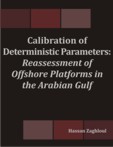Add abstract
Want to add your dissertation abstract to this database? It only takes a minute!
Search abstract
Search for abstracts by subject, author or institution
Want to add your dissertation abstract to this database? It only takes a minute!
Search for abstracts by subject, author or institution
Plasmonic nanoparticle superlattice nanosheets: design, fabrication & applications
by Kae Jye Si
| Institution: | Monash University |
|---|---|
| Year: | 2016 |
| Keywords: | Plasmonic; Nanoparticles; Self-assembly; Superlattices; Surface enhanced Raman scattering |
| Posted: | 02/05/2017 |
| Record ID: | 2117355 |
| Full text PDF: | http://arrow.monash.edu.au/hdl/1959.1/1241001 |
Ordered periodic arrays of metal nanoparticles, termed superlattices, are attracting increasing interest in the modern field of nanoscience and nanotechnology due to the ability to enable engineering of unprecedented light-matter interactions. This offers a highly promising pathway towards discovery of novel optical phenomena that plays a pivotal role in shaping up future next-generation technological devices. However, the precise assembly of nanoparticles into well-defined superlattices with tunable plasmonics still remains a grand technical challenge with existing approaches. The downstream integration of such superlattices into real world technologies is also another issue which is currently hampered by the limited lateral dimension and rigidity of most superlattice assemblies. To address these existing challenges, this thesis introduces Plasmene, which is a conceptually new class of two-dimensional materials assembled from meta-atoms from the “plasmonic periodic table”. A general and robust bottom-up soft ligand-based approach in conjunction with evaporation mediated self-assembly at air-water interface was successfully designed to fabricate the plasmene nanosheets. These sheets are free-standing and monolayered in nature, with ultimate nanoscale thickness but macroscopic lateral dimensions. In addition, plasmene nanosheets possesses several unique features. For instance: 1) Its mechanical robustness allows demonstration of the first patterning and folding of 2D plasmene into 1D nanoribbons and 3D origami nanostructures, 2) Support of surface propagating plasmonics enabled their use as a superlattice-fiber waveguide coupler with polarizer selectivity, and 3) Localized gap plasmonics, high mechanical flexibility and optical transparency features enabled their use as a soft surface-enhanced Raman scattering (SERS) substrate for direct chemical detection. The successful design of plasmene nanosheets with simultaneous structural and functional control allows fundamental understanding of the self-assembly and plasmonic coupling interactions of nanoparticles, which will facilitate integration into the downstream real-world forensic applications. This was demonstrated in two separate studies. First, plasmene nanosheets allowed both qualitative and quantitative analysis of illicit and pharmaceutical drug overdose, as well as detection of trace amount of drugs on banknotes. Secondly, plasmene sheets can serve as dual-coded anti-counterfeit security label for banknotes. By engineering the geometrical parameters of the plasmene building blocks and choice of SERS molecular label, it allows virtually unlimited coding capabilities which opens a new route towards future anti-counterfeit technologies. Advisors/Committee Members: Principal Supervisor: Wenlong Cheng, Supervisor: Jing Fu.
Want to add your dissertation abstract to this database? It only takes a minute!
Search for abstracts by subject, author or institution


|
Predicting the Admission Decision of a Participant...
|

|
Development of New Models Using Machine Learning M...
|

|
The Adaptation Process of a Resettled Community to...
A Study of the Nubian Experience in Egypt
|

|
Development of an Artificial Intelligence System f...
|

|
Theoretical and Experimental Analysis of Dissipati...
|

|
Optical Fiber Sensors for Residential Environments
|

|
Calibration of Deterministic Parameters
Reassessment of Offshore Platforms in the Arabian ...
|

|
How Passion Relates to Performance
A Study of Consultant Civil Engineers
|